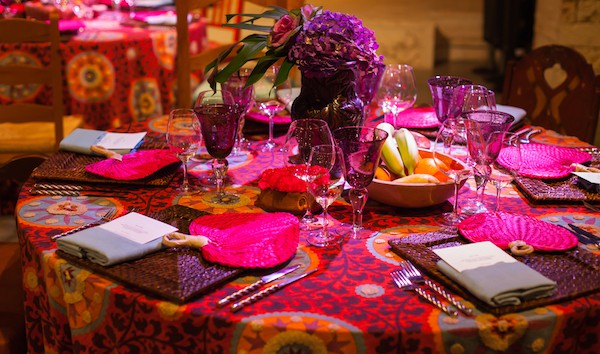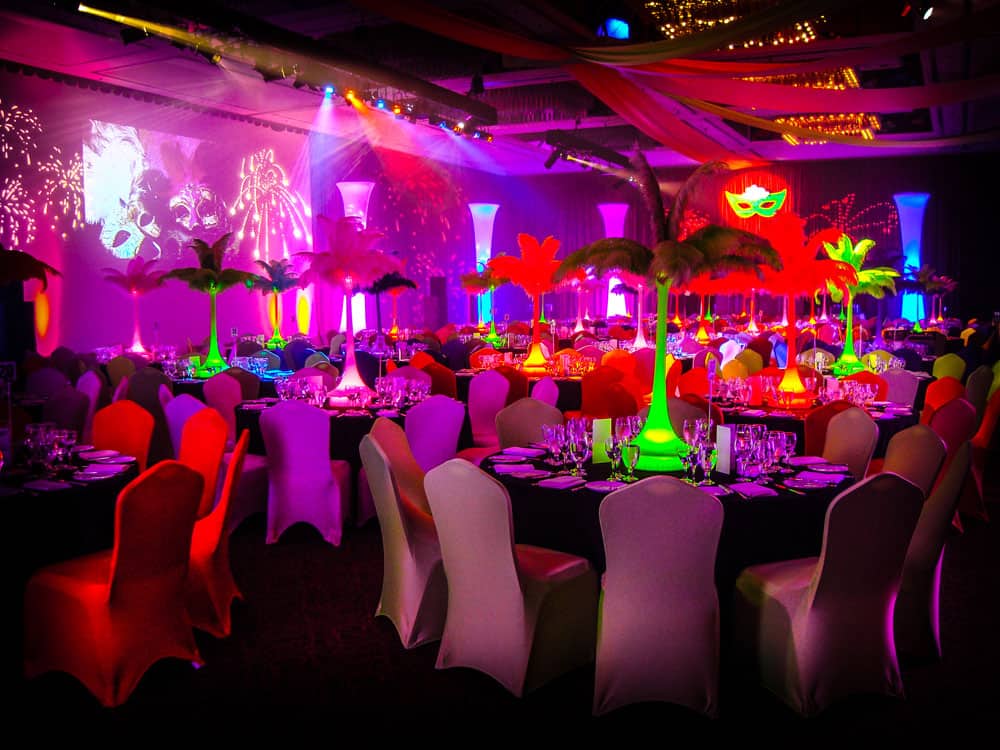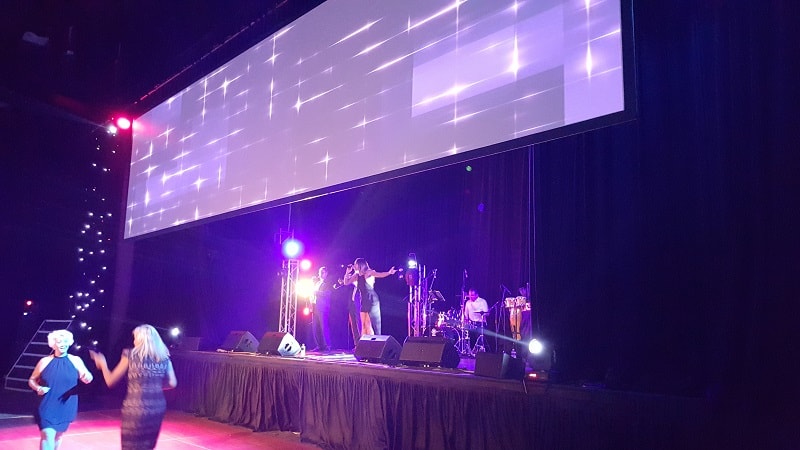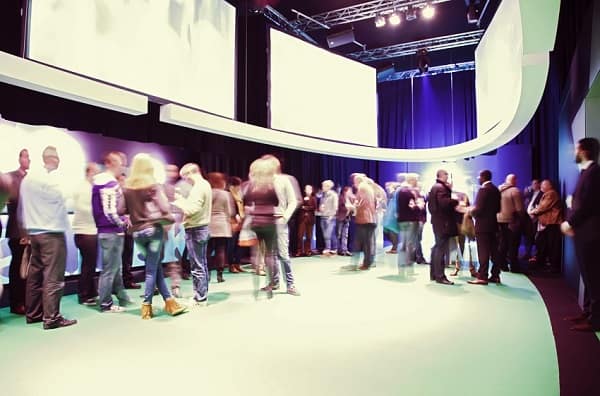To theme or not to theme? That is the event planning question!
Planning an event? You might be considering whether or not to have a theme.
A theme is the idea or concept behind your event that can give the event structure. Having a theme can benefit an event in many ways, but it does come with a few drawbacks. So should your event be themed or themeless?
Benefits of having a theme
It can make your event memorable. A theme can make your event distinctive and memorable for guests. By selecting a theme that is unique and fully committing to it, you can wow your attendees and drive your event message home.
It can help steer your event planning. Having a theme in place can help dictate your event planning decisions. A theme can provide a rough guideline for your event so that you can streamline your planning process.
It can engage your guests. A theme creates a point of difference that will be compelling for your guests. Themed audiovisual elements or a themed dress code will help your guests be fully committed to your event and immersed in the event experience.
It can reinforce your event message. If chosen well, a theme can elevate your event message, help with your branding and make an impact on your guests. In order to enhance your event message, your theme should be chosen with your event objective in mind and at the forefront of your planning process.
The drawbacks of having a theme
It’s not always practical. Events like roundtables and seminars aren’t as well-suited to having a theme as Christmas parties and gala dinners. Information-focused events like these will have focus topics already, so having a theme could distract from the discussion topic at hand.
It can limit your choices. After selecting a theme, your event decisions will be driven by it. While this isn’t alway a problem (it can give you focus and clarity in the planning process), having a theme can make your event decisions more limited.
It might distract from your messaging. If executed well, a theme can help reinforce your event message and key takeaways, but if your theme doesn’t meld with your event objective, it can do the complete opposite. You’ll want your guests to remember your event for its message, not just the theme. So if you think a theme might distract from your message and branding, it’s better to go without.
If you choose to have a themeless event, you can still make an impact through unique styling and a branded colour scheme. Creative lighting and decorations can help deliver your branding and boost your event message.
If you choose to have a theme, you can promote it through your audiovisual elements, dress code, invitations, programs, marketing, decor, entertainment, food and music.
Stuck for ideas? Here are a few themes that we have coordinated in the past: wild west, roaring 20s, the 80s, the 90s, pop star, masquerade, acrobatic and circus theme, chocolate fantasy, black and gold, global cuisine, the Olympics, and a jungle theme. While a theme should have a strong presence and be consistent across your event, it can be as flexible as you’d like it to be! If you would like help with your next event, contact us today.









